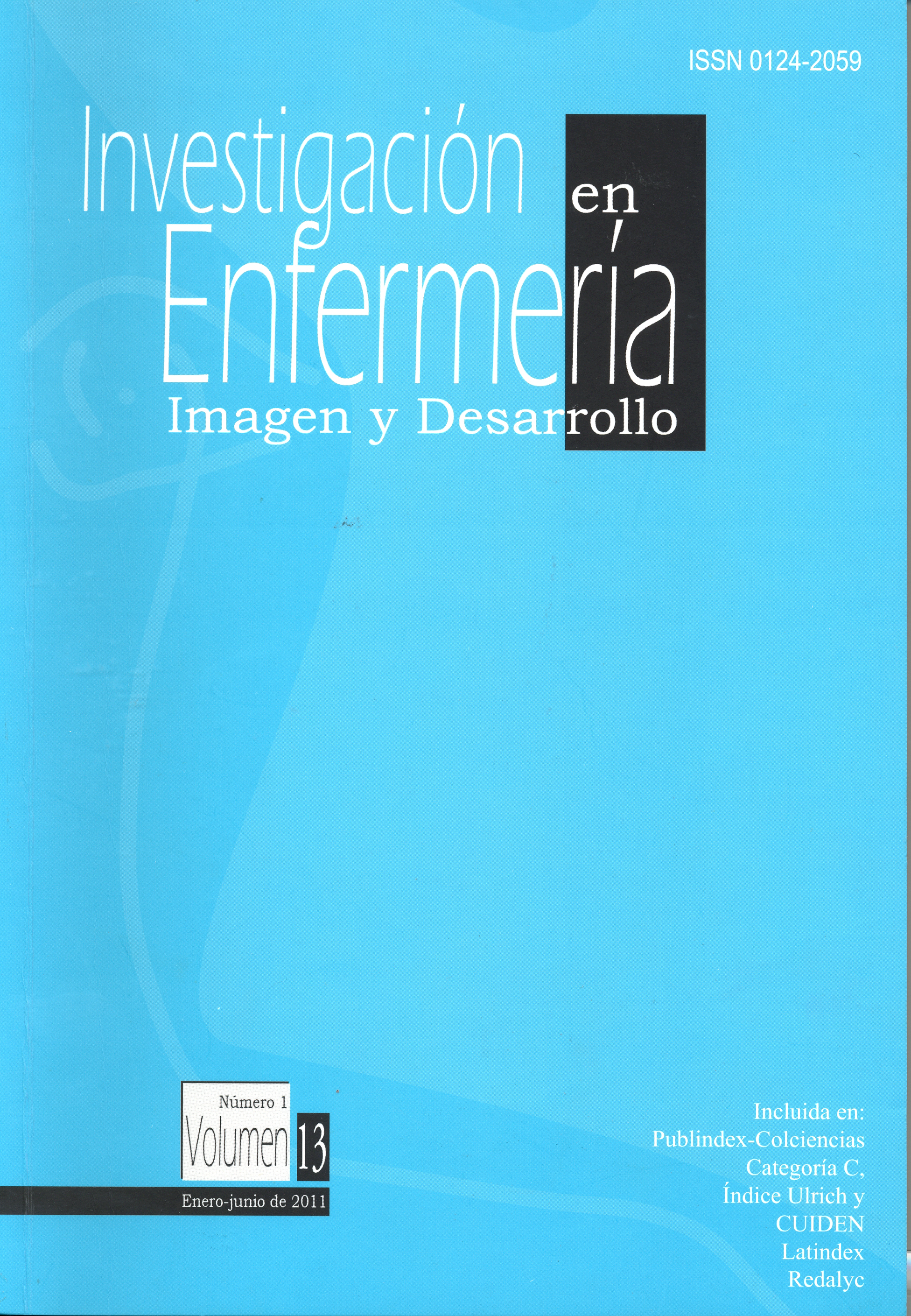Abstract
The chronic partial- dependence are those whereby the individual is capable of facilitating self-care, but needs a caregiver to provide them support, assistence in the disease process, help to contribute to their sel-care and thus, fulfill the therapeuctic regimen. The labor of the caregiver triggers an interruption in their care, leading to a dysfunction in the quality of life, which should be evaluated to ensure their welfare, taking into account the responsability when making decisions compared to family care. Caring for a patient with cronic partial-dependence disease implies the experience of changes in their daili lives, related to the transformation of roles, responsabilities, changes in lifestyles and supportive relationship. The purpose of this review article is to provide theorical foundations that allow nursing professionals to rcognize not only the patient with cronic disease requires care, but also his caregiver in oredr to opportunely identify their needs and develop timely interventions to improve the life quality of both indeed. Therefore, there will be a through revision of the classification of chronic diseases according to their dependency, the concept of caregivers of people with chronic partial dependence disease, their quality of life, and the role of professional nursing in the care of these cargivers.
The journal Investigación en Enfermería: Imagen y Desarrollo is registered under a Creative Commons Attribution 4.0 International Public License. Thus, this work may be reproduced, distributed, and publicly shared in digital format, as long as the names of the authors and Pontificia Universidad Javeriana are acknowledged. Others are allowed to quote, adapt, transform, auto-archive, republish, and create based on this material, for any purpose (even commercial ones), provided the authorship is duly acknowledged, a link to the original work is provided, and it is specified if changes have been made. Pontificia Universidad Javeriana does not hold the rights of published works and the authors are solely responsible for the contents of their works; they keep the moral, intellectual, privacy, and publicity rights.
Approving the intervention of the work (review, copy-editing, translation, layout) and the following outreach, are granted through an use license and not through an assignment of rights. This means the journal and Pontificia Universidad Javeriana cannot be held responsible for any ethical malpractice by the authors. As a consequence of the protection granted by the use license, the journal is not required to publish recantations or modify information already published, unless the errata stems from the editorial management process. Publishing contents in this journal does not generate royalties for contributors.


